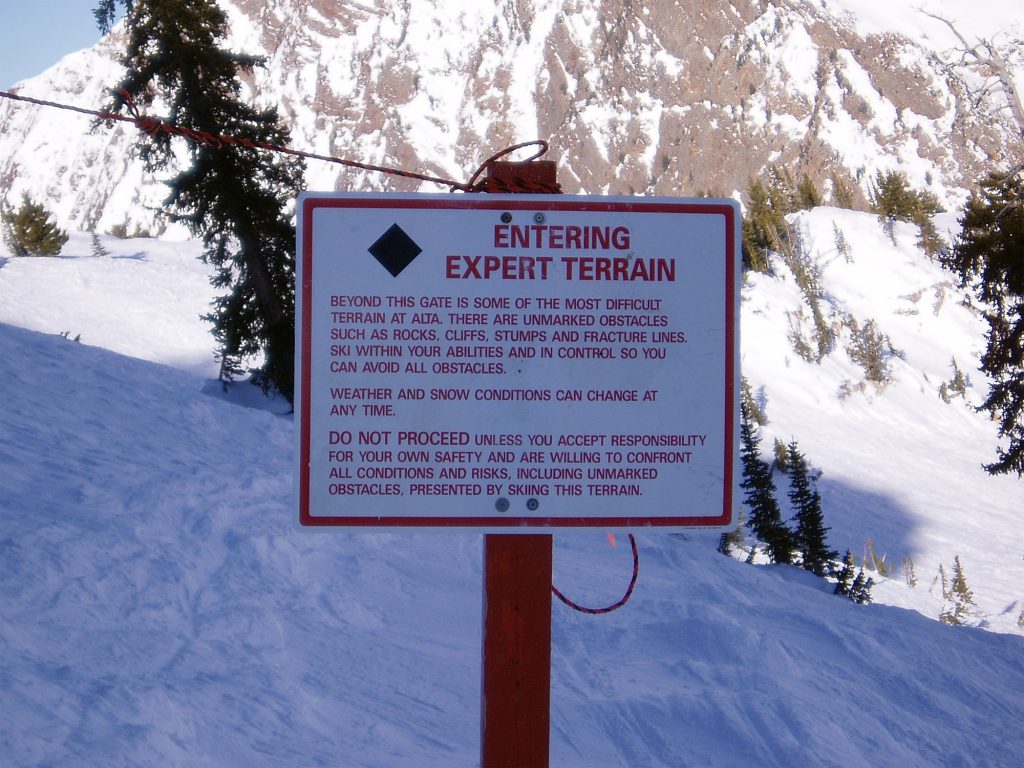 Parties to a lawsuit are required to submit evidence in support of their claim. Depending on the piece of evidence, the court may demand very specific evidence; and in such circumstances, complying with the mere spirit of the order to produce evidence may not be enough for the court. A party who does not provide the evidence requested by the court may be held in contempt as one Louisiana plaintiff recently found out the hard way.
Parties to a lawsuit are required to submit evidence in support of their claim. Depending on the piece of evidence, the court may demand very specific evidence; and in such circumstances, complying with the mere spirit of the order to produce evidence may not be enough for the court. A party who does not provide the evidence requested by the court may be held in contempt as one Louisiana plaintiff recently found out the hard way.
The case arose from a dispute regarding the right to harvest particular tracts of timber. The plaintiffs in the original case were the owners of the land, Paradise Land and Lake, LLC, and Paradise Rod and Gun, Inc. (“Paradise”). In 1998, an Act of Exchange was executed between Paradise and Roy O. Martin Lumber Company, Inc. (“Martin”). According to the document, Martin bought the merchantable timber, but with a limitation of one harvest during a twenty-five period. In 2008, as a result of a pair of Timber Rights Agreements between Martin and Louisiana Hardwood Products, LLC and Louisiana Hardwood Forestlands, LLC (“Louisiana Hardwood”), Martin’s right to harvest timber was transferred to Louisiana Hardwood for the remainder of the twenty-five years stipulated by the original agreement.
Before transferring rights to Louisiana Hardwood, Martin had harvested timber on two portions of the property. Per the terms of the original agreement, Louisiana Hardwood did not have the right to harvest timber from either of these two areas; however, when Louisiana Hardwood attempted to harvest timber from other portions of the property, timber from the disallowed area was taken.
 Louisiana Personal Injury Lawyer Blog
Louisiana Personal Injury Lawyer Blog


 When asserting a cause of action or maintaining certain legal defenses in court, parties bear the burden of proving their case. This is done by presenting evidence to the court such as documents and witness testimony. Often, certain issues will require the court to make findings of fact which require scientific expertise or specialized knowledge. Expert witnesses assist the trial court in understanding complex issues of fact that could be determinative to the outcome of a case. A recent decision discusses how a court qualifies experts and utilizes their testimony.
When asserting a cause of action or maintaining certain legal defenses in court, parties bear the burden of proving their case. This is done by presenting evidence to the court such as documents and witness testimony. Often, certain issues will require the court to make findings of fact which require scientific expertise or specialized knowledge. Expert witnesses assist the trial court in understanding complex issues of fact that could be determinative to the outcome of a case. A recent decision discusses how a court qualifies experts and utilizes their testimony. Failing to name all potentially liable parties in a lawsuit in a timely manner could result in the loss of the right to add those parties to the lawsuit at all. A case out of Avoyelles Parish, Louisiana illustrates the importance of finding a good lawyer after an automobile accident to ensure that all potentially liable parties are named before it is too late.
Failing to name all potentially liable parties in a lawsuit in a timely manner could result in the loss of the right to add those parties to the lawsuit at all. A case out of Avoyelles Parish, Louisiana illustrates the importance of finding a good lawyer after an automobile accident to ensure that all potentially liable parties are named before it is too late.  How do you know whether an arbitration provision in a contract applies? The easy answer: read the contract. If you are a member of a company that provides services to you, such as financing your small business needs, you must be sure to closely read any and all documentation relating to the services provided and what you can do if you are dissatisfied with the company’s work. Companies will often include an arbitration and mediation clause in their contracts with individual members. This means that instead of suing the company in a court of law, the dispute would first have to be arbitrated by an independent third party and an attempt at mediation would have to be made. In Louisiana, companies frequently create operating agreements that function as contracts between owners and members. These operating agreements use a lot of boiler plate language that is ultimately enforced. In fact, Louisiana law favors arbitration. See
How do you know whether an arbitration provision in a contract applies? The easy answer: read the contract. If you are a member of a company that provides services to you, such as financing your small business needs, you must be sure to closely read any and all documentation relating to the services provided and what you can do if you are dissatisfied with the company’s work. Companies will often include an arbitration and mediation clause in their contracts with individual members. This means that instead of suing the company in a court of law, the dispute would first have to be arbitrated by an independent third party and an attempt at mediation would have to be made. In Louisiana, companies frequently create operating agreements that function as contracts between owners and members. These operating agreements use a lot of boiler plate language that is ultimately enforced. In fact, Louisiana law favors arbitration. See  No one likes to deal with insurance matters. Shopping for insurance and understanding the terms of an insurance policy can be complex. Most people are happy to just pay their monthly premiums and know that they have insurance when they need it – and then hope they never need it at all. One woman learned how complex insurance matters can be when she was injured in July of 2012 when the Pontiac Sunfire that she was driving was involved in an auto accident in Ouachita Parish.
No one likes to deal with insurance matters. Shopping for insurance and understanding the terms of an insurance policy can be complex. Most people are happy to just pay their monthly premiums and know that they have insurance when they need it – and then hope they never need it at all. One woman learned how complex insurance matters can be when she was injured in July of 2012 when the Pontiac Sunfire that she was driving was involved in an auto accident in Ouachita Parish. If your contractor tells you a job will take a day, you might expect it to actually take a week. But, do you have to pay your contractor for time they are unable to work? Depending on the contract agreement you signed you may be liable for the costs the contractor has even when work is not going according to plan. This may be particularly true if you fail to uphold some part of the bargain. Whenever you enter a contract or feel that a contract may have been breached, it is important that you fully understand your contract. A case out of Baton Rouge in 2001 gives some insight into the necessary proof when trying to recover for contract losses.
If your contractor tells you a job will take a day, you might expect it to actually take a week. But, do you have to pay your contractor for time they are unable to work? Depending on the contract agreement you signed you may be liable for the costs the contractor has even when work is not going according to plan. This may be particularly true if you fail to uphold some part of the bargain. Whenever you enter a contract or feel that a contract may have been breached, it is important that you fully understand your contract. A case out of Baton Rouge in 2001 gives some insight into the necessary proof when trying to recover for contract losses.  If you fail to make payments on a mortgage you may lose your home, but you may also be held liable for any remaining debt after your home has been sold. If the sale of your house does not pay off the balance of what you owe, the institution owning the mortgage may come after you for a deficiency judgment. A deficiency is essentially the balance remaining on the loan after the sale of the property. For example, if a homeowner with a $100,000 mortgage defaults and the bank sells their home for $75,000, there would be a $25,000 deficiency. The owner of the debt may be able to come after a person for the deficiency.
If you fail to make payments on a mortgage you may lose your home, but you may also be held liable for any remaining debt after your home has been sold. If the sale of your house does not pay off the balance of what you owe, the institution owning the mortgage may come after you for a deficiency judgment. A deficiency is essentially the balance remaining on the loan after the sale of the property. For example, if a homeowner with a $100,000 mortgage defaults and the bank sells their home for $75,000, there would be a $25,000 deficiency. The owner of the debt may be able to come after a person for the deficiency.
 Court procedures can be confusing for many people. Cases can be even more confusing when they involve medical malpractice claims. One Louisiana case arising from injuries suffered by the plaintiff from treatment he received in March and April of 2009 reached the summary judgment stage. The complaint was originally filed with the Commissioner of Administration in accordance with the Louisiana Medical Malpractice Act.
Court procedures can be confusing for many people. Cases can be even more confusing when they involve medical malpractice claims. One Louisiana case arising from injuries suffered by the plaintiff from treatment he received in March and April of 2009 reached the summary judgment stage. The complaint was originally filed with the Commissioner of Administration in accordance with the Louisiana Medical Malpractice Act.  Employment discrimination can be damaging for both parties involved. It generally involves employee mistreatment, or a perception of such, that causes harm to the plaintiff. The employee must show that the employer treated him or her differently because of a federally protected reason, such as age, race, religion, or disability. Conversely, if the “at will” employee cannot prove he or she was fired for one of these reasons, there is no cause of action. Employment discrimination can be pursued in state court or federal court. However, when one court dismisses the action, a plaintiff cannot bring the same claim to another court. This idea is known as res judicata or claim preclusion, meaning “a matter already judged.” Having a good lawyer who knows the local and federal rules of civil procedure could save a plaintiff the time and money that comes with having their claims barred.
Employment discrimination can be damaging for both parties involved. It generally involves employee mistreatment, or a perception of such, that causes harm to the plaintiff. The employee must show that the employer treated him or her differently because of a federally protected reason, such as age, race, religion, or disability. Conversely, if the “at will” employee cannot prove he or she was fired for one of these reasons, there is no cause of action. Employment discrimination can be pursued in state court or federal court. However, when one court dismisses the action, a plaintiff cannot bring the same claim to another court. This idea is known as res judicata or claim preclusion, meaning “a matter already judged.” Having a good lawyer who knows the local and federal rules of civil procedure could save a plaintiff the time and money that comes with having their claims barred.